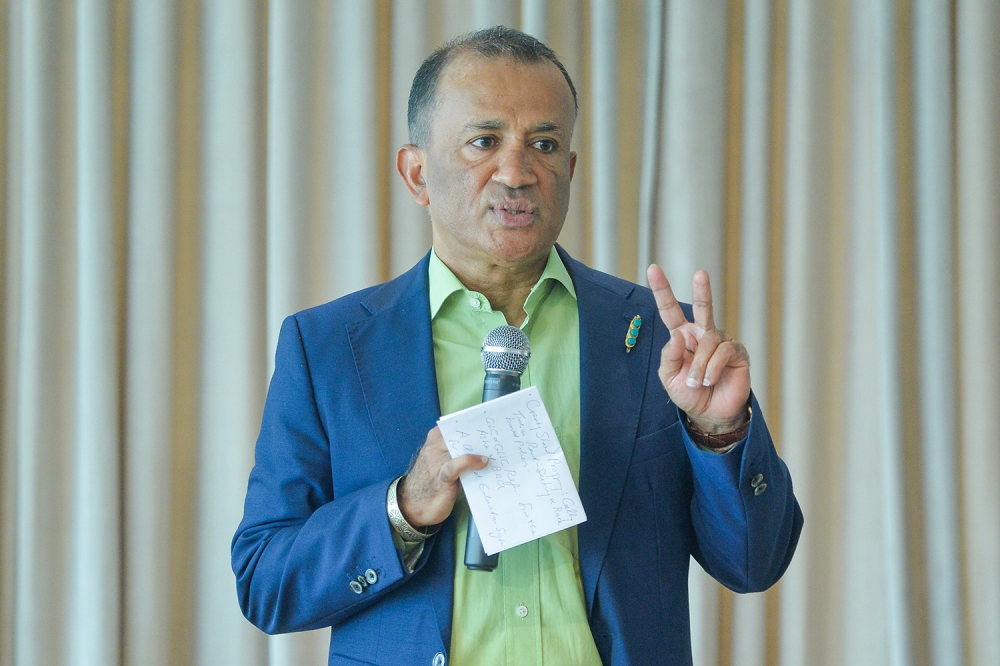KUALA LUMPUR, Feb 23 — Race-based rent-seeking has become entrenched in Malaysia and will need more than the usual echo chamber to convince the country to discard the practice, speakers told the “Now Everyone Prospers (NEP): The Best of Both Worlds” forum today.
The forum’s topic was a play on the technically defunct NEP (New Economic Policy) that was introduced in the aftermath of the 1969 race riots to ostensibly tackle racial inequality in Malaysia, but has been misused for rent-seeking by the politically connected.
Iman Research co-founder Dina Zaman said all the intellectual conversations about corruption and generating deeper understanding of the topic must go beyond Klang Valley and reach the country’s heartlands to have real effect.
In part, Dina said this was because some in the ethnic Malay community did not realise that their participation in systems of rent-seeking and patronage ultimately fostered an environment that was conducive to corruption.
“You have to go out of KL and engage with the people. Now we do a lot of work on the ground, and I’ve been doing this even when I was a journalist.
“There are a lot of people out there you need to engage. There’re a lot of youth groups, you don’t have to like them but if you want to know what the heartland is about, what their needs are,” she told the forum organised by Global Institute of Tomorrow (GIFT).
Rent-seeking is when someone seeks to enrich themselves through social or political links but without generating new wealth or benefits to the larger society.

According to Dina, one justification for rent-seeking among some in the Malay community was a supposed view that they were responsible for defending their race and its religion, Islam, from the amorphous threat of progress and liberalisation.
Citing the rejection of the attempt to certify the International Convention on the Elimination of All Forms of Racial Discrimination (ICERD) in 2018, she said the sentiment stemmed from the same brand of Malay nationalism.
She further said that when the community began noticing the number of non-Malay ministers in the Cabinet of the Pakatan Harapan administration at the time, it whipped itself into the belief that the Malays were losing their leadership role in the government.
“But when I asked my father, he said all his bosses in government were Indian and Chinese in his time. But this current generation doesn’t realise this. They say ‘no, this is a shock to us, all these years since we were young, we always had Malay faces in government’.
“They said that was when they realised that it was a political calling for them and to get back the identity they have forgotten,” she added.

GIFT chief executive officer Chandran Nair said pervasive rent-seeking has become a chronic drain on the economy as a result of the systemic misallocation of the country’s natural, human, and financial resources.
Going forward, he said unaddressed rent-seeking would also erode Malaysia’s international business reputation, deterring global companies and investors from seeing Malaysia as a viable place to do business.
“The institutional and business damages caused by the prevailing rent-seeking economy are not isolated from Malaysian society. Rather, there are significant carryovers that result in a host of issues, including continuing political instability, economic inequality, deepening of racial divisions, and even worsening of the rural-urban and East-West divide.
“Additionally, implications can manifest on non-material measures of the health of Malaysia's social fabric, such as corrosion of public trust in government, erosion of value systems, stagnating social mobility for the marginalised communities,” he said.
The forum session explored the impact of race-based rent-seeking on Malaysia’s development.
The forum focused on the prevalence of rent-seeking behaviour in Malaysia across both the public and private sector and how it creates inefficiencies in the economy, stifles development, and hurts the country's social fabric.




















